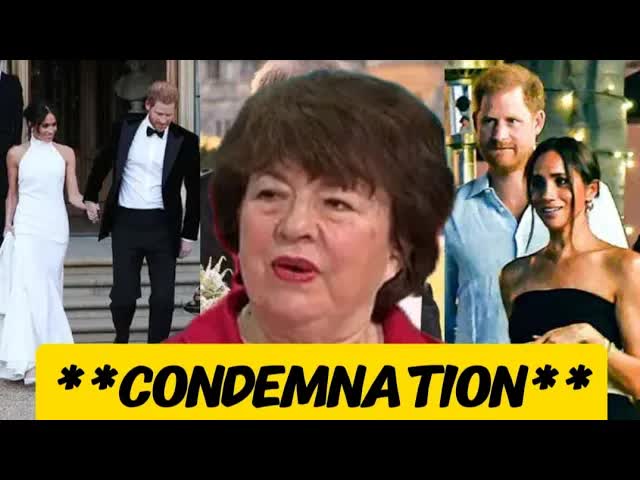In a dramatic twist in royal commentary, Angela Levin, a prominent royal biographer, has ignited a firestorm of criticism for suggesting that the Home Office should leverage Prince Harry’s past drug admissions against him to deny him security protection in the UK.
This controversial stance has left many royal watchers and supporters of Harry aghast, raising questions about ethics and the implications of such actions.
Levin, known for her outspoken views on royal matters, took to social media to express her belief that Harry’s admissions, detailed in his memoir “Spare,” should be grounds for denying him police protection during his visits to Britain.
Her comments have not only drawn ire from Harry’s supporters but have also reignited the ongoing debate surrounding his security arrangements, highlighting the contentious divide within royal commentary circles.
Critics have been vocal in their disapproval, arguing that using someone’s past struggles with substance use as a reason to deny them protection is not just unethical but could also pose serious risks.
After all, Harry has faced significant security concerns, especially following the intense media scrutiny and public interest surrounding his life and family.
The uproar intensified when Levin attempted to connect Harry’s situation with unrelated scandals, such as the Hugh Edwards case, suggesting that these incidents should somehow influence Harry’s security status.
This comparison was met with disbelief, as many felt it was an inappropriate and misguided attempt to undermine Harry’s rightful request for protection.
In the midst of this chaos, public sentiment appears to be largely against Levin.
Many are calling her out for crossing a line, accusing her of seeking attention rather than engaging in meaningful discourse about the complexities of royal security.
The backlash has been swift, with social media users expressing their shock and disappointment at her remarks.
As the situation unfolds, it’s clear that Levin’s comments have stirred up more than just a debate about security; they have also sparked discussions about the treatment of mental health and past mistakes in the public eye.
Critics argue that everyone deserves the opportunity to move forward without their past being used as a weapon against them.
Harry, who has served in the military and faced his own share of challenges, has been vocal about his need for security when visiting the UK.
Given the threats he has encountered, including aggressive paparazzi and public scrutiny, his requests seem reasonable to many.
Yet, Levin’s comments suggest a troubling narrative that could further alienate Harry from his homeland.
The royal family itself has been caught in the crossfire of this controversy.
Reports indicate that there is tension behind palace walls regarding Harry’s security situation, with various members holding differing opinions.
This ongoing drama raises questions about the future of Harry’s relationship with the royal family and how they navigate these public challenges.
As Levin prepares to defend her stance on television, the media landscape remains abuzz with reactions to her comments.
Some commentators are calling for a more compassionate approach to discussing Harry’s needs, emphasizing that he deserves protection just like anyone else facing threats.
The implications of this controversy are vast, not just for Harry but for the royal family as a whole.
It could potentially reshape how the public perceives the monarchy and its responsibilities towards its members.
The dialogue surrounding mental health, security, and the treatment of public figures is more relevant than ever.
With emotions running high and opinions sharply divided, one thing is certain: the saga of Prince Harry’s security is far from over.
As the public continues to engage with this unfolding story, it will be interesting to see how both Levin and the royal family respond to the growing scrutiny and calls for fairness.
